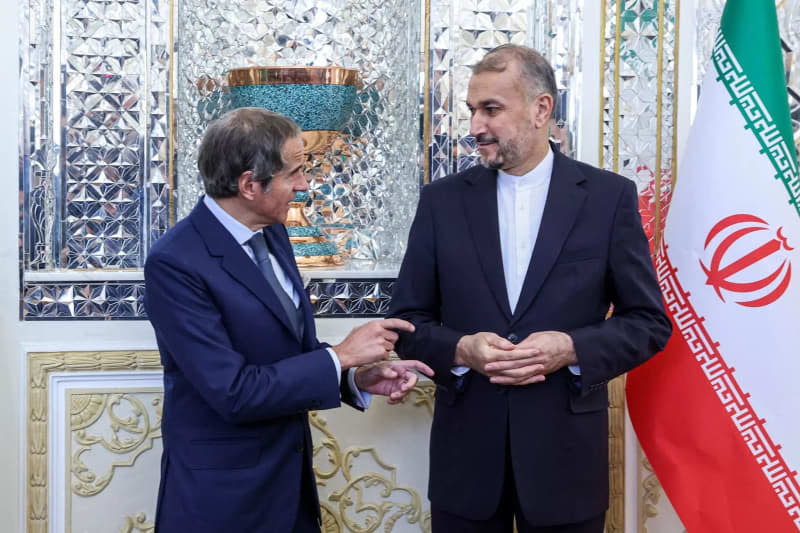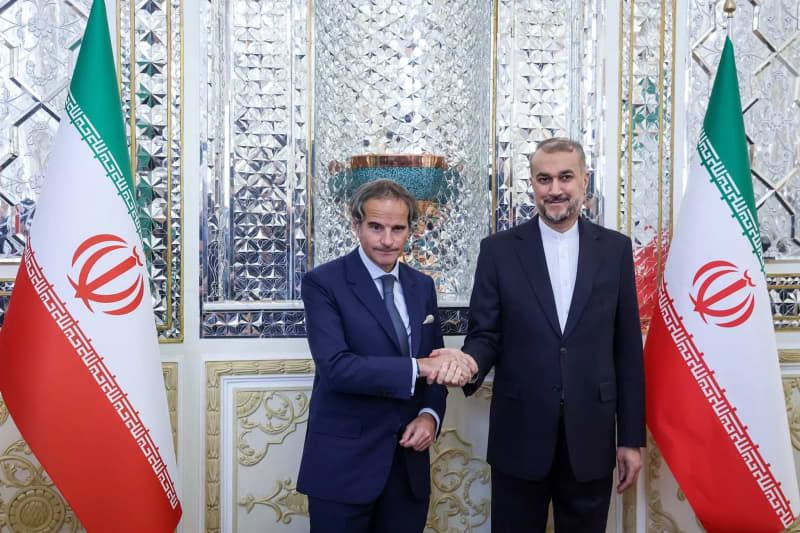IAEA leader Grossi arrives in Iran for meetings on nuclear programme

- Oops!Something went wrong.Please try again later.
- Oops!Something went wrong.Please try again later.
The head of the International Atomic Energy Agency (IAEA), Rafael Grossi, arrived in Tehran on Monday for the first talks with Iranian officials in more than a year.
The visit comes at a turbulent time given the recent direct military clashes between Iran and Israel.
After arriving in the Iranian capital on Monday, Grossi met Iranian Foreign Minister Hossein Amirabdollahian, according to Iranian media reports.
As in previous years, the IAEA chief is expected to negotiate with top Iranian politicians on the country's nuclear programme.
In addition to the bilateral negotiations, according to Iranian media reports, Grossi is also due to take part in the country's first international nuclear conference on Tuesday.
Grossi has long been trying to get answers from Iran about past secret nuclear activities. According to Grossi, there are still "important information gaps."
A few days ago, Iran's nuclear chief Mohammed Eslami expressed confidence that the IAEA leader's trip could bring an end to the differences.
On Monday, Eslami reiterated plans to push ahead with the domestic nuclear programme for energy production in remarks at the start of the nuclear conference, as reported by the state news agency IRNA.
At the same time, Eslami lamented the relatively high number of IAEA inspections of Iranian facilities as compared to other countries.
"We hope that the agency [IAEA] can fulfil its role free from political influence and pressure," he said, according to the state agency.
Iran had committed to severely restricting its nuclear programme in an agreement in 2015 in exchange for relief from sanctions.
The pact, which was intended to prevent Iran from building nuclear bombs, was terminated by then-US president Donald Trump in 2018.
In response, Tehran greatly expanded uranium enrichment and restricted IAEA inspections.
But amid rising military tensions in the Middle East, an Iranian military commander hinted in mid-April that the country could take a new course on its nuclear programme.
Iran's Foreign Ministry, however, has categorically denied that Iran was striving for nuclear weapons, despite renewed speculation following the clashes with Israel and the war in the Gaza Strip.
Iran is currently enriching uranium to a purity level of 60%, and in the past, critics have expressed doubts about the civilian use of such highly enriched uranium.
According to experts enrichment to more than 90% is required for nuclear weapons.


